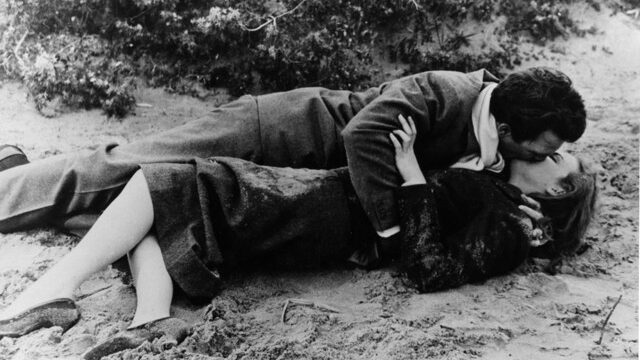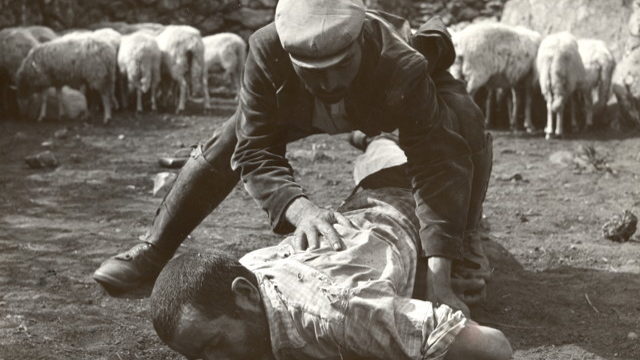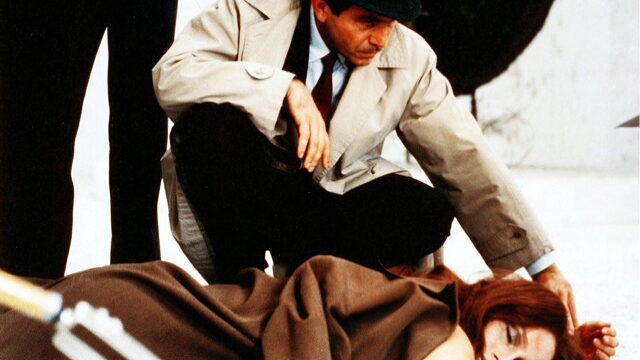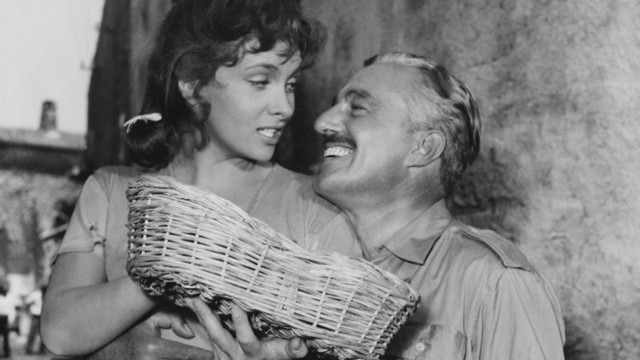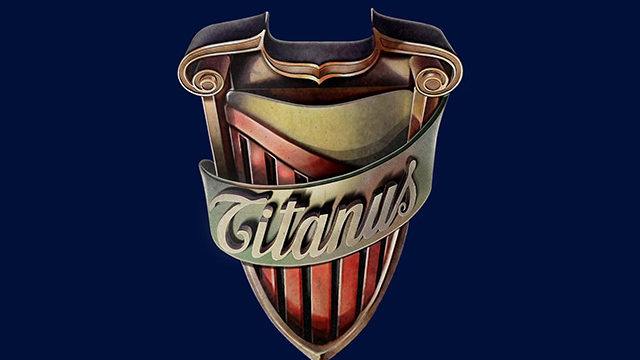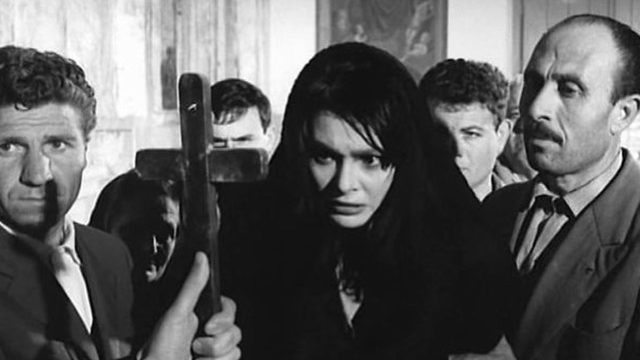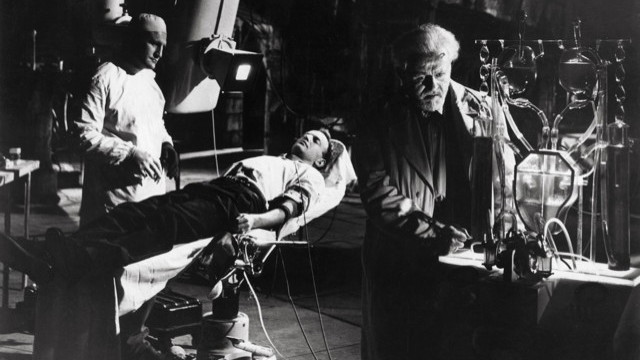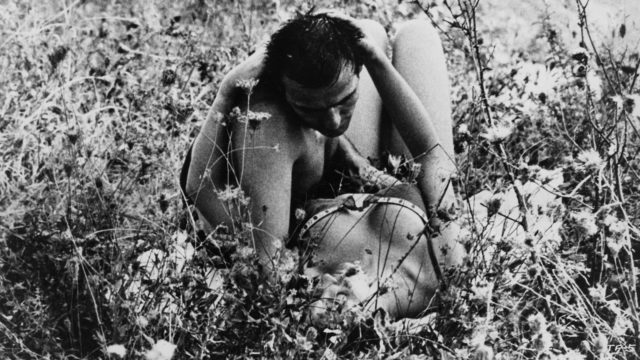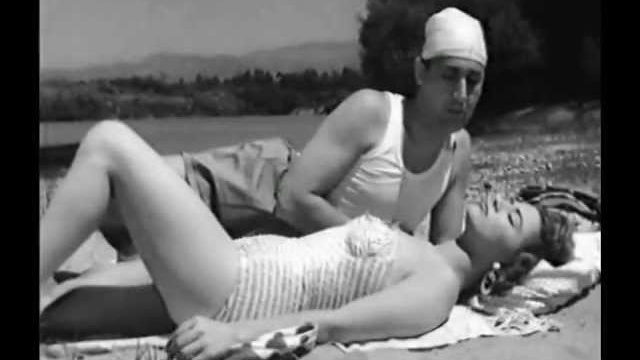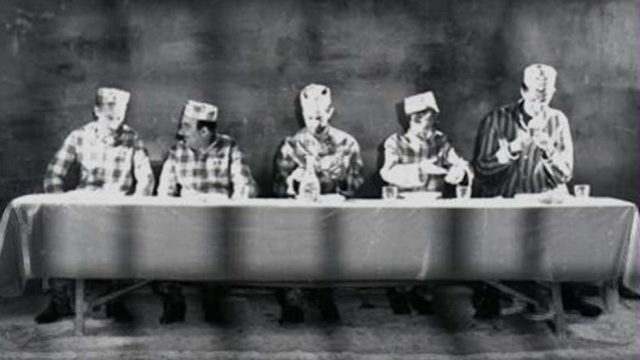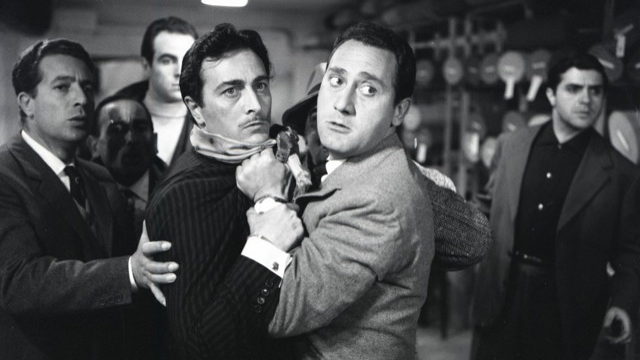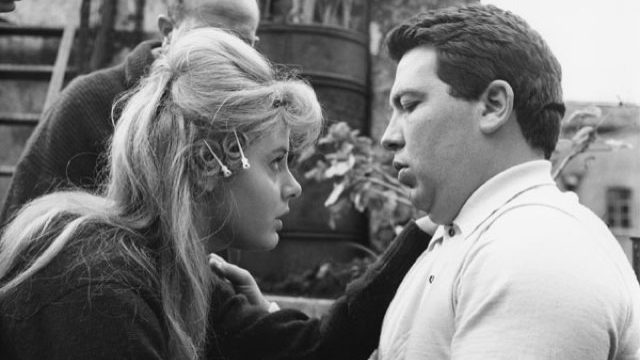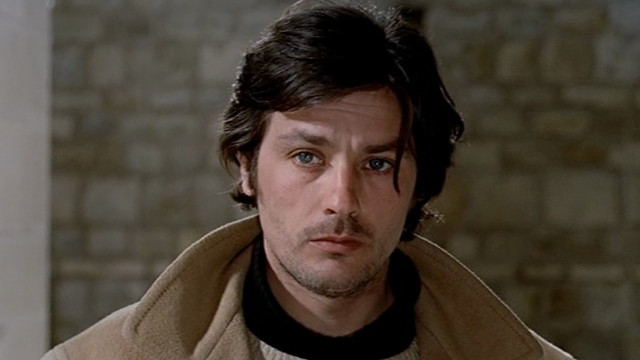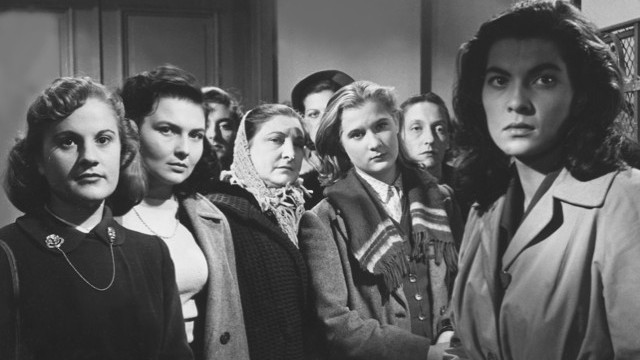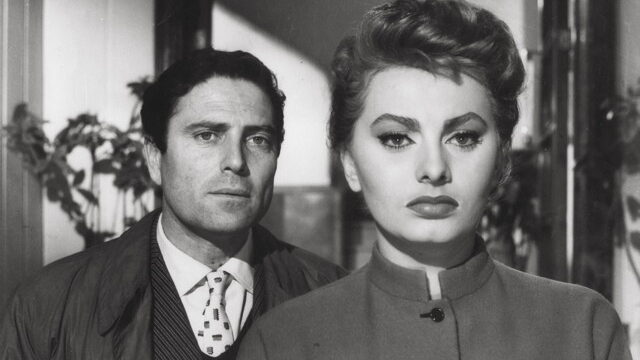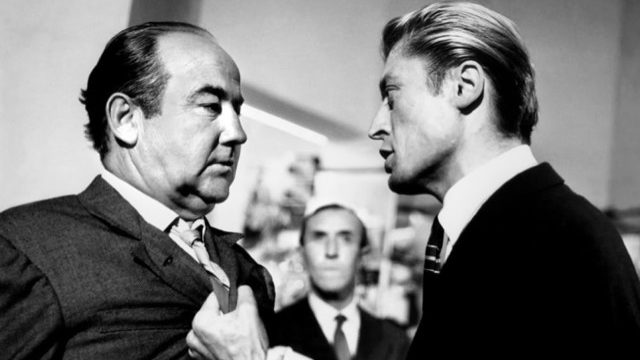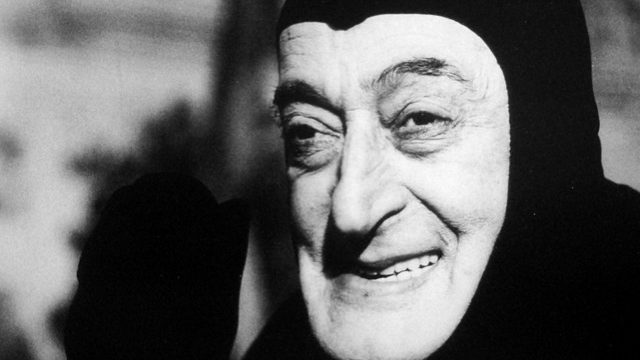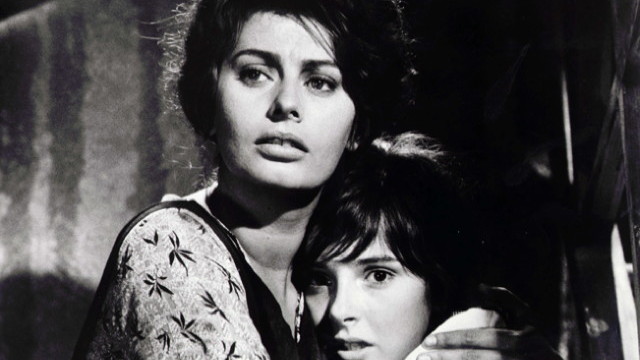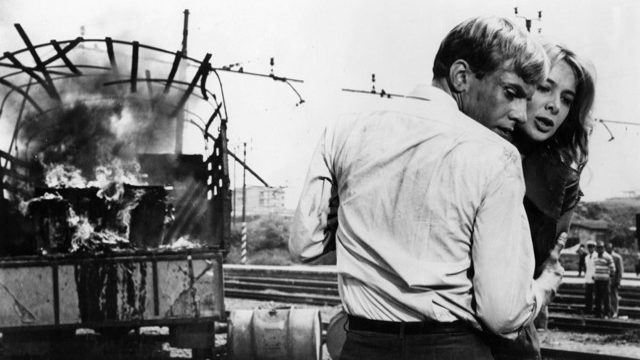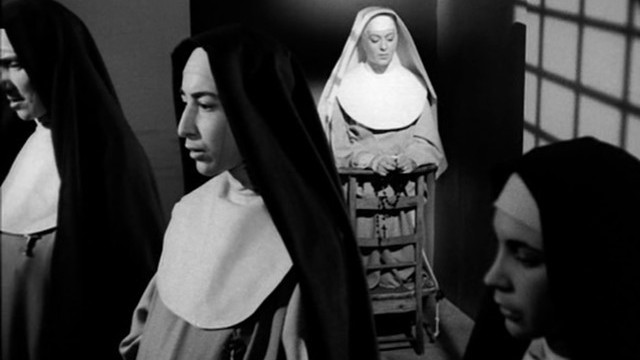Titanus: A Family Chronicle of Italian Cinema
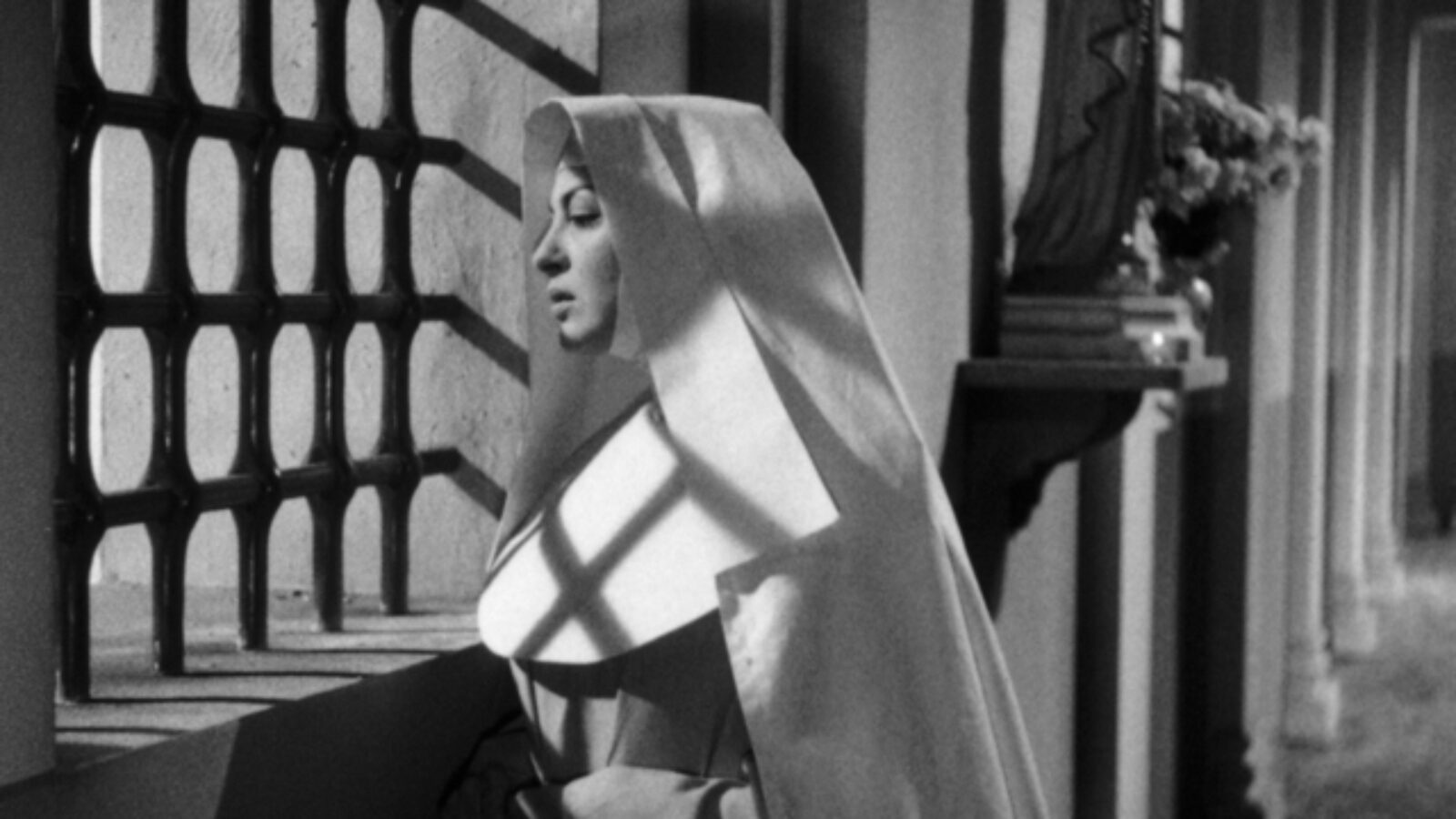
May 22 – 31
Like MGM’s lion and The Archers’ target, the familiar shield and sash of Titanus is more than a logo, it’s a promise. The Italian studio’s not of capital-Q quality, perhaps, as it churned out as many lowbrow comedies and sword-and-sandal epics as artistic triumphs. But it’s of something more primal—of movies for lovers of movies. But as campy and cheap as they can be, Titanus films are never indifferent, and you’d be hard-pressed to find one not charged with delight in its own being. Titanus was founded in 1904 by Gustavo Lombardo and run by him until his death in 1951, when his son Goffredo assumed control. The company remains in the family to this day, but arguably its peak was the first 15 years of Goffredo’s tenure—a time when soul-searching works by Fellini and Antonioni alternated with gruesome frightfests by Argento and Bava, and transatlantic co-productions occurred long before they were common. The cost of Visconti’s The Leopard, among the studio’s crowning achievements, factored into a temporary shutdown in 1964, and subsequent output has been sporadic and less feature-driven. But the brand retains its luster, and the abundance and diversity of its boom years are truly, it must be said, titanic.
“A monumental studio that has produced some of the country’s best films since the post-war era. Whether in production or distribution, it’s impossible to trace the history of Italian cinema without finding Titanus along every stop of the way.” —The Hollywood Reporter
Organized by Isa Cucinotta and Dennis Lim for the Film Society of Lincoln Center. This program was selected from the Titanus retrospective curated by Roberto Turigliatto and Sergio M. Germani at the 2014 Locarno Film Festival, organized in collaboration with the Cineteca di Bologna, the Centro Sperimentale di Cinematografia – Cineteca Nazionale (National Film Archive), the Istituto Luce Cinecittà, and the Cinémathèque suisse in Lausanne.
See more for less with a 3+ Film Package or a $99 All Access Pass!
Le Amiche
New restoration!
New to Turin, a fashion designer befriends a quartet of wealthy, lovelorn women in this elegant character study that inaugurated the themes that would define Antonioni as a filmmaker.
Bandits of Orgosolo
Vittorio De Seta’s tough, post-neorealist study of survival in the highlands of Sardinia moved Martin Scorsese to observe: “It was as if De Seta were an anthropologist who spoke with the voice of a poet.”
The Bird with the Crystal Plumage
Dario Argento’s directorial debut! An American in Rome witnesses a botched murder, and then becomes obsessed with tracking down the mysterious attacker.
Bread, Love and Dreams
A middle-aged police chief pursues a spirited country girl in this Oscar-nominated farce, which supplied Gina Lollobrigida with perhaps her most popular role.
Cronaca Nera
New restoration!
A wanted criminal hides out in the home of an associate, finding love and reassessing his life in this unexpectedly poignant tale of redemption.
Days of Glory
New restoration!
The harrowing first documentary on the German occupation of Rome and the Italian resistance movement, helmed by four major figures in Italian cinema but seldom screened in the U.S.
The Demon
A love-crazed girl is taken for a witch by fanatical villagers in Brunello Rondi’s profoundly unnerving treatise on compulsion and superstition, a clear forerunner to The Exorcist.
Evil’s Commandment
The first Italian horror film of the sound era, a cheap but chilling twist on vampirism, anticipates decades of Euro Horror—including the works of its cinematographer and unbilled co-director, Mario Bava.
The Fiancés
A Milanese factory worker relocates to Sicily and leaves behind his fiancée in Olmi’s lyrical study of loneliness, which Kent Jones called “by far his most beautiful foray into modernist territory, simply because it feels so homegrown.”
A Hero of Our Times
A hard-charging boor exploits his widowed boss’s affections in this blackly comedic rumination on postwar amorality from Big Deal on Madonna Street director Mario Monicelli.
The Law of the Trumpet
New restoration!
This absurdist comedy about an ex-con working in a trumpet factory is the first film by Augusto Tretti, whom Fellini called “the madman that Italian cinema needs.”
Little Girls and High Finance
In this screwball comedy loosely based on a true story, a whistleblower gets revenge on the bank that fired him by ruthlessly playing the stock market. Co-starring Anita Ekberg!
The Magliari
New restoration!
“Poet of civic courage” Francesco Rosi directed this gritty account of life in the urban margins, as a Tuscan laborer arrives in Germany and falls in with a gang of crooked peddlers.
Numbered Days
After quitting his job, a middle-aged plumber is diagnosed with a terminal condition, and decides to wander the streets in this melancholy meditation on modern life and consumer values.
The Professor
Alain Delon stars as a bohemian literature professor and gambler who escapes his troubled wife by having an affair with one of his students.
Rome 11:00
An overlooked entry in the neorealist canon, Rome 11:00 chronicles the buildup to and aftermath of a real-life tragedy derived from the dearth of opportunities in postwar Rome.
The Sign of Venus
Dino Risi’s touching human comedy gave Sophia Loren an early triumph as Agnese, the town’s effortless object of male desire with whom her husband-seeking cousin cannot compete.
Sweet Deceptions
A 17-year-old girl examines her feelings for a much older family friend in Fellini collaborator Alberto Lattuada’s tender portrait of burgeoning adulthood that defies coming-of-age clichés.
The Swindle
Fellini’s heartrending portrait of three itinerant con men is among his most socially conscious works, highlighted by exceptional acting from its international cast.
Totò Diabolicus
Kind Hearts and Coronets meets Danger: Diabolik in this uproarious black comedy, which features Italian superstar Totò (nicknamed “The Prince of Laughter”) in six roles.
Two Women
A widow (Sophia Loren, in an Oscar-winning role) and her daughter find peace (and an affable Marxist played by Jean-Paul Belmondo) in the countryside, but their idyll is shattered on their way back to Rome.
Violent Summer
The draft-dodging son of a prominent Fascist (Jean-Louis Trintignant) falls for a war widow in the summer leading up to Italy’s 1943 armistice.
The White Angel
King of Italian melodrama Raffaello Matarazzo merges neorealism with Sirk and Hitchcock in the continuing narrative of Guido, the luckless hero of Nobody’s Children.

